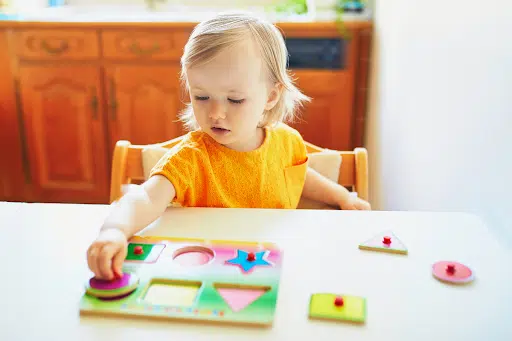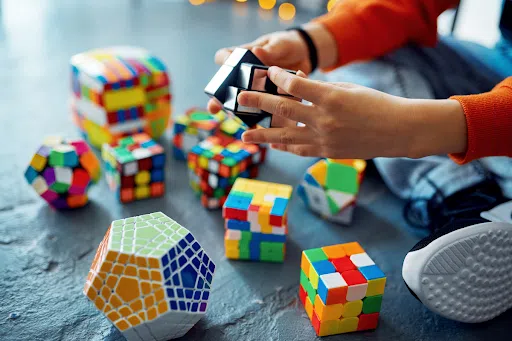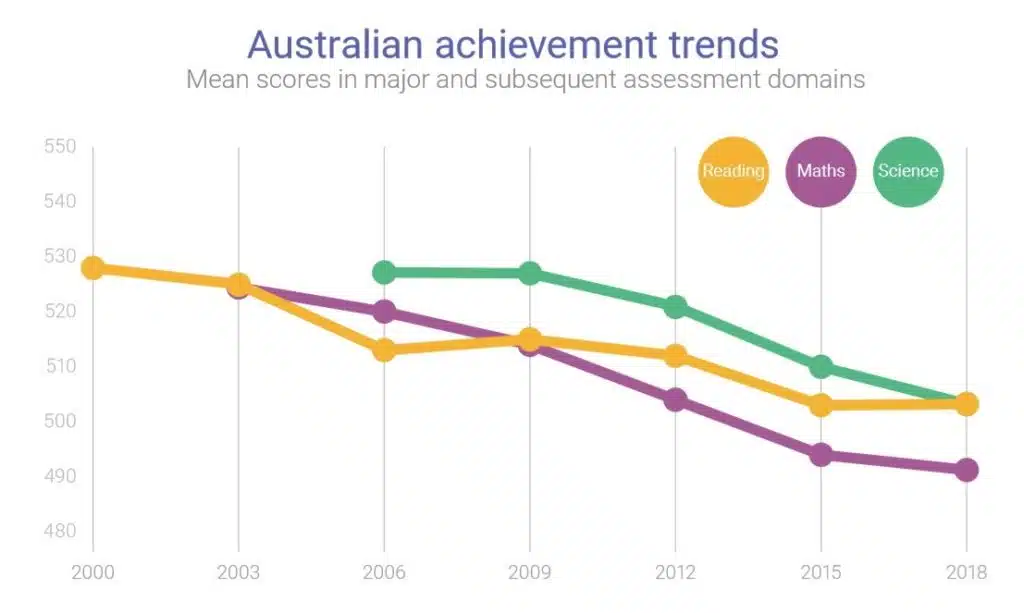
Ever wonder how to equip your kids with the superpower to tackle life’s puzzles? Welcome to our guide on how to improve problem-solving skills for children! It’s more than just fun and games; it’s about setting them up for a lifetime of ‘aha!’ moments and success.
What are Problem-Solving Skills?
Problem-solving skills involve the ability to handle difficult or unexpected situations and to find solutions to challenges. For young children, these skills are about learning to think critically, make decisions, and approach problems in creative ways.
Why Fostering Problem-Solving Skills is Important
Let’s talk about why it’s so important for your child to get good at solving problems–it’s about preparing them for the big wide world. Here’s a look at how problem-solving touches different parts of their life and why incorporating problem-solving skill strategies into early childhood is so crucial for their development.
Foundational Skills
Thinking things through
Problem-solving is really about learning to think things through. Take a child figuring out a jigsaw puzzle – they’re not just matching pieces; they’re learning to tackle bigger challenges later in life.
Getting creative
Sometimes, kids need to think creatively to solve problems. Imagine your child using boxes and blankets to build a fort. They’re learning to use what they have in fun and inventive ways.
Sharpening their minds
Working out problems is great exercise for the brain. Simple things like sorting toys by colour or size help your child develop logical thinking.
Emotional and Social Development
Becoming independent
Solving problems helps kids become more independent. Like when they master tying their shoes – it’s a small step, but it’s a big deal for them.
Understanding feelings
Problem-solving often involves understanding and managing emotions. For instance, when your child works out an argument with a friend, they’re learning important lessons about empathy and managing their feelings.
Playing well with others
Many problems need teamwork to solve. When children collaborate and strategise together, they’re learning the essential skill of working with others – a crucial ability as they mature.
Life Skills and Future Readiness
Ready for the future
The problem-solving skills kids learn now set them up for tackling life’s bigger challenges down the track. A child who learns not to give up on a tricky challenge or game is building resilience for tougher tasks in school and life.
Learning to adapt
Life’s full of surprises, and problem-solving teaches kids to adapt. Like when your child figures out a new way to play a game with missing pieces, they’re learning to go with the flow.
Growing confidence
There’s nothing like the feeling of solving a tough problem. When your child finally gets the answer to a difficult maths question, the boost in confidence is unbeatable.
Making choices
At its heart, problem-solving is about making decisions. Whether it’s your child deciding how to spend their pocket money or choosing what game to play, they’re practising making choices they’ll face as adults.

How to improve problem-solving skills for kids
Encouraging questions and smart thinking
Improving your child’s problem-solving skills is a journey filled with curiosity, play, and learning. As a parent, your role in this journey is to help by improving problem-solving skills. Start by encouraging their natural curiosity.
Answer their endless ‘why’, ‘what’, and ‘how’ questions, and you’ll lay the groundwork for critical thinking and problem-solving. Remember, every question they ask is an opportunity for them to understand and engage with the world more deeply.
Learning through play and observation
Incorporating play into their daily routine is also key to improving problem-solving skills. Through games and activities like puzzles and building blocks, children learn to think both critically and creatively.
These playful moments are not just fun but essential for their cognitive development. As you play alongside them, model problem-solving behaviour.
Let them see how you tackle everyday challenges, weigh options, and come to decisions. Children learn a great deal from observing adults, so showing them how you solve problems can be incredibly beneficial.
Team activities, like group projects or collaborative tasks, provide a valuable context for developing collaborative problem-solving skills. In these settings, children learn to listen to others, work as a team, and find solutions collectively.
Alongside this, it’s important to offer age-appropriate challenges. These challenges could range from simple daily decisions for younger children to more complex tasks for older ones. By doing so, you’re helping them to build confidence and independence.
Teaching your child to break down big problems into smaller parts can also make challenges seem less daunting. This skill is crucial, as it allows them to tackle complex problems with less anxiety and more success. In addition, encourage them to reflect on the problems they have solved. This reflection not only consolidates their learning but also reinforces the skills they’ve used.
Solve real problems together
In your day-to-day life, use real-life scenarios to encourage problem-solving. For example, if something breaks at home, involve your child in figuring out a solution, which is a very practical approach to improving problem-solving skills.
Finally, patience is key. Problem-solving can sometimes be a source of frustration for children. Offer your support and understanding, reassuring them that it’s okay to make mistakes and that persistence is part of the learning process.

Activities and games to improve problem-solving skills
Engaging your little one in a problem-solving skills game or activity is a fun way to work on this skill set while having fun! It’s important to choose age-appropriate activities that foster problem-solving skills for children. Younger children might engage in simple puzzles and creative play, while older children can handle more complex tasks and games.
Here are some ideas to flex those problem-solving muscles at home:
For Ages 2-3 Years:
Simple puzzles: Start with large-piece puzzles that are easy for little hands to manipulate. These help toddlers develop basic problem-solving skills as they figure out which piece goes where.
Matching games: Use cards or homemade drawings for a simple matching game. Matching similar images or shapes helps enhance their observation and comparison skills.
Treasure hunt: Hide a toy somewhere in the house and give your toddler simple clues to find it. This activity encourages them to think and follow directions.
Building blocks: Encourage your child to build towers or simple structures with blocks. This not only improves their motor skills but also encourages creative problem-solving as they figure out how to balance and build. Our Stacking Cups are ideal for young learners to practise their problem-solving skills.
Shape sorters: Toys that require sorting shapes into the correct holes can help toddlers learn about shapes and develop their problem-solving skills.
For Ages 4-5 Years:
Role-playing: Set up different scenarios for pretend play. Whether it’s playing shopkeeper or doctor, role-playing allows children to come up with solutions to imaginary problems.
Simple board games: Introduce board games that require decision-making, like ‘Snakes and Ladders’. These games teach children to think ahead and deal with unexpected outcomes.
Craft projects: Engage in simple crafts where they need to follow instructions or create something from their imagination. This helps develop their ability to follow steps and use materials creatively.
Obstacle course: Set up a mini obstacle course in your backyard or living room. Challenge your child to go through it, which helps with their physical problem-solving skills.
‘What If’ stories: Create stories together, asking questions like “What if the character loses their way?” or “What if it starts raining?” This activity enhances creative thinking and problem-solving.
Puzzle Games: Introduce puzzle games such as Cho Cho Ban, a geometrically shaped tangram-based puzzle with various challenges to encourage their critical thinking and problem-solving.
For Ages 6-7 Years:
More complex puzzles: Introduce more complex jigsaw puzzles that require more time and thought. This helps develop patience and more advanced problem-solving skills.
Rapid Whole Brain Workout Set: A comprehensive problem-solving activity set designed to enhance both creative and analytical thinking through puzzles and number games, suitable for children in the 6-7 years age group.
Science experiments: Simple, safe experiments at home can be a fun way to explore cause and effect. For example, making a volcano with baking soda and vinegar teaches them to follow steps and observe results.
Strategy board games: Games like ‘Checkers’ or ‘Connect Four’ are great for this age. They encourage kids to think strategically and plan their next moves.
Time Shock: fast-paced puzzle game that enhances a child’s concentration and quick thinking by challenging them to match fifteen different shapes within a set time limit, ideal for children aged 3-7 years.
Planning a small project: Have them plan a small project, like a backyard campout. They’ll need to figure out what they need, how to set it up, and solve any problems that arise.
Riddle solving: Introduce them to riddles and brainteasers. These are fun ways to challenge thinking and improve problem-solving skills for children.
By incorporating these games and activities into your routine, you’re helping your child develop crucial problem-solving skills in an engaging and supportive environment.
The Shichida Method’s approach to problem-solving
At Shichida Australia, we blend creativity and logic to teach problem-solving, opening a world of discovery for your child. Our program, recognising the vital role of problem-solving in developmental years, lays a solid foundation for future success.
We offer a range of brain training games, puzzles, and critical-thinking exercises, tailored to each age group. Younger children enjoy fun activities like shape puzzles and sorting, building early problem-solving skills. As they grow, we introduce more complex challenges like 3D tangram puzzles and maths games, fostering their critical-thinking abilities and instilling a lifelong love of learning.
Book a trial class at a Shichida early learning centre today!


